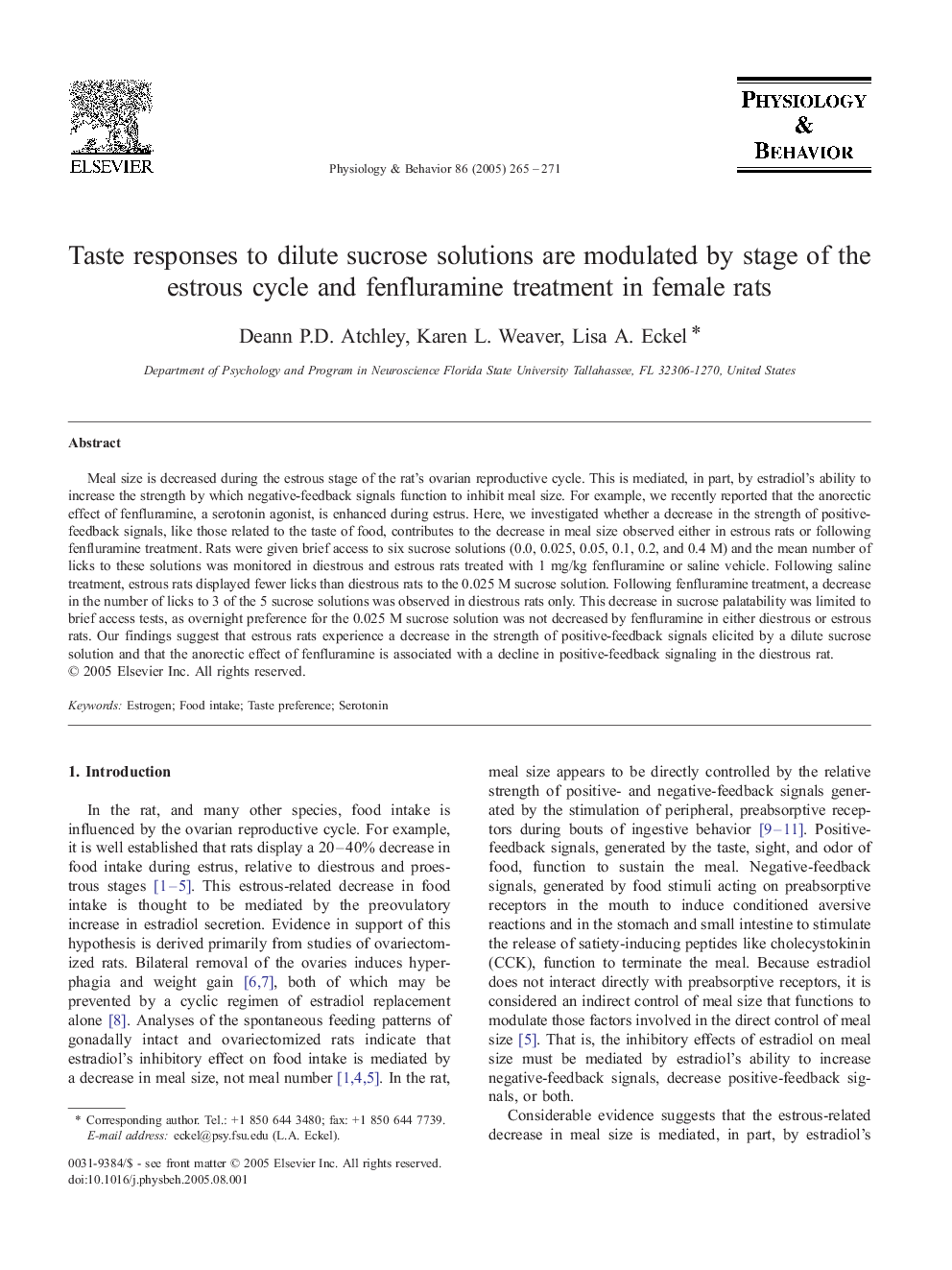| Article ID | Journal | Published Year | Pages | File Type |
|---|---|---|---|---|
| 9149578 | Physiology & Behavior | 2005 | 7 Pages |
Abstract
Meal size is decreased during the estrous stage of the rat's ovarian reproductive cycle. This is mediated, in part, by estradiol's ability to increase the strength by which negative-feedback signals function to inhibit meal size. For example, we recently reported that the anorectic effect of fenfluramine, a serotonin agonist, is enhanced during estrus. Here, we investigated whether a decrease in the strength of positive-feedback signals, like those related to the taste of food, contributes to the decrease in meal size observed either in estrous rats or following fenfluramine treatment. Rats were given brief access to six sucrose solutions (0.0, 0.025, 0.05, 0.1, 0.2, and 0.4 M) and the mean number of licks to these solutions was monitored in diestrous and estrous rats treated with 1 mg/kg fenfluramine or saline vehicle. Following saline treatment, estrous rats displayed fewer licks than diestrous rats to the 0.025 M sucrose solution. Following fenfluramine treatment, a decrease in the number of licks to 3 of the 5 sucrose solutions was observed in diestrous rats only. This decrease in sucrose palatability was limited to brief access tests, as overnight preference for the 0.025 M sucrose solution was not decreased by fenfluramine in either diestrous or estrous rats. Our findings suggest that estrous rats experience a decrease in the strength of positive-feedback signals elicited by a dilute sucrose solution and that the anorectic effect of fenfluramine is associated with a decline in positive-feedback signaling in the diestrous rat.
Related Topics
Life Sciences
Biochemistry, Genetics and Molecular Biology
Physiology
Authors
Deann P.D. Atchley, Karen L. Weaver, Lisa A. Eckel,
